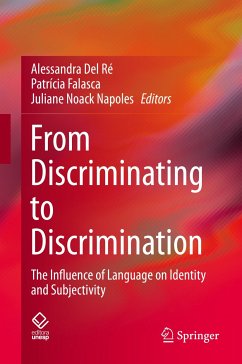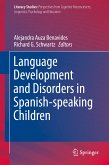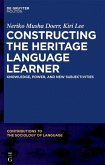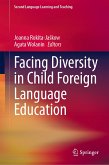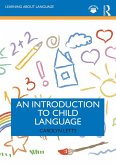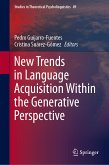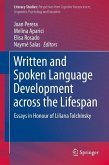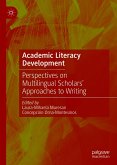This book adopts a multidisciplinary approach to try to answer the question of how do we, as human beings, go from the socially neutral linguistic act of discriminating external stimuli to the socially loaded act of promoting social discrimination though language? This contributed volume brings together works presented at the international event "From Discriminating to Discrimination - The Influence of Language on Identity and Subjectivity". This was an online event hosted and organized by the Brandenburg University of Technology (BTU), Germany, in partnership with São Paulo State University (UNESP), Brazil, that brought together lecturers from different universities around the world.
During the event, linguists, psychologists, language teachers, social workers and pedagogues got together to discuss how discriminating can be recognized as a natural and important ability of the human being in the early stages of life and, after that, how to avoid discriminatory acts against others. The debates held online took into account the important and necessary dialogue between linguistics and other social sciences to discuss the role played by language as a form of building subjectivity and teaching practices that can contribute to minimize discrimination and promote integration and acceptance in a broad sense, understanding the preponderant role of language in recognizing what is different (discriminating), without diminishing or excluding it (discrimination).
From Discriminating to Discrimination: The Influence of Language on Identity and Subjectivity will help linguists, psychologists, educators, social workers and a broad range of social scientists working with cognitive, linguistic and educational studies understand the path taken by differentiation, from the beginning of the child's language development - when discrimination (of sounds, gestures, etc.) is essential for the acquisition of language to occur -, until the moment when differentiation, discrimination, ceases to be an essential factor and becomes a means of social segregation.
During the event, linguists, psychologists, language teachers, social workers and pedagogues got together to discuss how discriminating can be recognized as a natural and important ability of the human being in the early stages of life and, after that, how to avoid discriminatory acts against others. The debates held online took into account the important and necessary dialogue between linguistics and other social sciences to discuss the role played by language as a form of building subjectivity and teaching practices that can contribute to minimize discrimination and promote integration and acceptance in a broad sense, understanding the preponderant role of language in recognizing what is different (discriminating), without diminishing or excluding it (discrimination).
From Discriminating to Discrimination: The Influence of Language on Identity and Subjectivity will help linguists, psychologists, educators, social workers and a broad range of social scientists working with cognitive, linguistic and educational studies understand the path taken by differentiation, from the beginning of the child's language development - when discrimination (of sounds, gestures, etc.) is essential for the acquisition of language to occur -, until the moment when differentiation, discrimination, ceases to be an essential factor and becomes a means of social segregation.
Dieser Download kann aus rechtlichen Gründen nur mit Rechnungsadresse in A, B, BG, CY, CZ, D, DK, EW, E, FIN, F, GR, HR, H, IRL, I, LT, L, LR, M, NL, PL, P, R, S, SLO, SK ausgeliefert werden.

